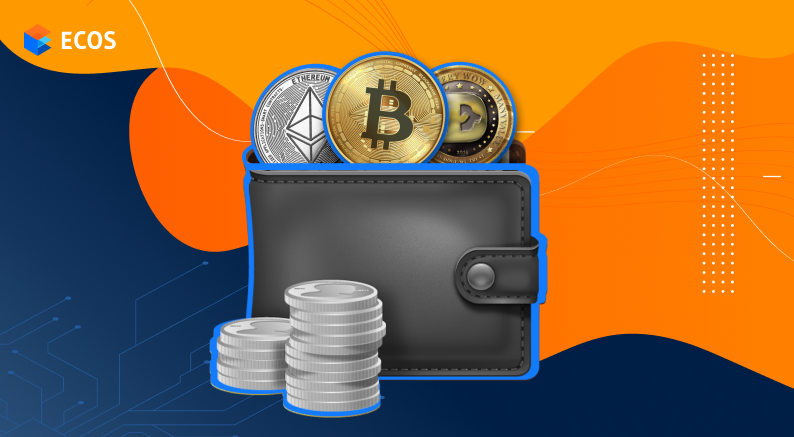Cryptocurrency wallets: what is it?

Cryptocurrency wallets are means to keep your private keys – frankly, the passwords that give you access to your cryptocurrencies – safe and accessible, allowing you to send and receive cryptocurrencies while other nodes use public keys to verify transactions. A private key can be compared to a password, needed to gain access to a specific transaction, so it must be kept in safety – in the cryptocurrency wallet. Security is one of the reasons behind so many people becoming interested in cryptocurrency mining, and it’s achieved with cryptocurrency wallets. This is a necessary means of keeping crypto assets secure and safe, making them accessible only by their owner or holder of the wallet itself.
Cryptocurrency wallets can be hardware and software. It can usually contain many different cryptocurrencies at the same time. Cryptocurrency wallets give you the means to fully control all your stored funds and private keys: confirmation or decline of transactions, sending and receiving assets from any other crypto address. Some of them may even provide you access to decentralized applications (dApps) and other decentralized services.
There are few different types of Cryptocurrency wallets, each with its unique features and purposes.
Software (hot) cryptocurrency wallets
Hot wallets are web applications or browser extensions. The private keys are stored in the cloud. Authentication is done using a password and a passphrase (a set of 12-14 random words).
Despite being not exactly the most secure way to store crypto assets, due to the dangers of hackers, fishers, and malware that are aimed to steal your possessions, they are the most commonly used wallets in the world because they are the easiest to access. To use a hot wallet, all you may have to need is a smart device and secure Internet access.
Hardware (cold) cryptocurrency wallets
Cold wallets usually take the form of a USB flash drive and store private keys in such a way that they are never vulnerable to threats from the Internet, which is their main difference from hot wallets. The only time cold wallets require Internet access is to confirm a transaction; the wallet must be connected to the smart device you are using to perform the transaction, and you simply confirm or complete the transaction using the hardware wallet. Access to the cold wallet code is also required.
This is why cold wallets are the safest way to store cryptocurrencies. However, this security comes with a price, unlike many of the wallets. The price of a hardware wallet may differ from 50 to 170 USD, with the price depending on the specific model you want to buy. Among the cold ones, the most known and considered the best are the Ledger Nano X and the Trezor One. But the technology and engineering never stay in one place too long, providing us with new technologies, such as relatively recent cloud mining or DeFi, so more models with a higher level of security are yet to come.
Paper wallets
Paper wallets are basically pieces of paper that have private key information written or typed on them. This type of password should be kept in the safest location possible. Though paper wallets are no longer popular, due to the fact that they are not very practical and convenient, and also due to the rise of hot and cold wallets.









